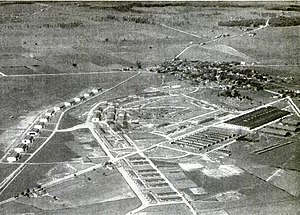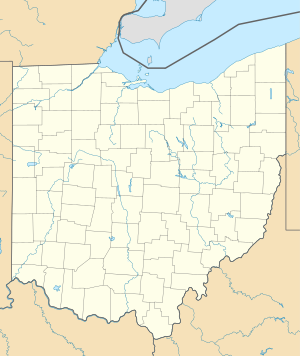Wilbur Wright Field
| Wilbur Wright Field | |
|---|---|
| Riverside, Ohio | |

Wilbur Wright Field, circa 1920
|
|
| Coordinates | 39°46′46″N 84°6′16″W / 39.77944°N 84.10444°WCoordinates: 39°46′46″N 84°6′16″W / 39.77944°N 84.10444°W |
| Type | Pilot training airfield |
| Site information | |
| Controlled by |
|
| Condition | National Museum of the United States Air Force |
| Site history | |
| In use | 1917–1951 |
| Battles/wars |
World War I World War II |
| Garrison information | |
| Garrison | Training Section, Air Service |
Wilbur Wright Field was a military installation and an airfield used as a World War I pilot, mechanic, and armorer training facility and, under different designations, conducted United States Army Air Corps and Air Forces flight testing. Located near Riverside, Ohio, the site is officially "Area B" of Wright-Patterson Air Force Base and includes the National Museum of the United States Air Force built on the airfield.
Wilbur Wright Field was established in 1917 for World War I on 2,075 acres (840 ha) of land adjacent to the Mad River which included the 1910 Wright Brothers' Huffman Prairie Flying Field and that was leased to the Army by the Miami Conservancy District. Logistics support to Wilbur Wright Field was by the adjacent Fairfield Aviation General Supply Depot established in January 1918 and which also supplied three other Midwest Signal Corps aviation schools. A Signal Corps Aviation School began in June 1917 for providing combat pilots to the Western Front in France, and the field housed an aviation mechanic's school and an armorer's school. On 19 June 1918, Lt. Frank Stuart Patterson at the airfield was testing machine gun/propeller synchronization when a tie rod failure broke the wings off his Airco DH.4M while diving from 15,000 ft (4,600 m). Also in 1918, McCook Field near Dayton between Keowee Street and the Great Miami River began using space and mechanics at Wilbur Wright Field. Following World War I, the training school at Wilbur Wright Field was discontinued.
...
Wikipedia

